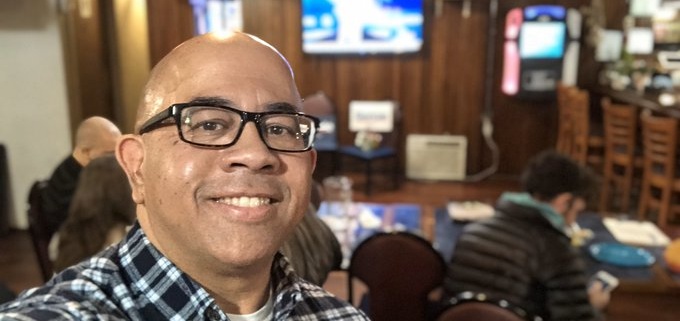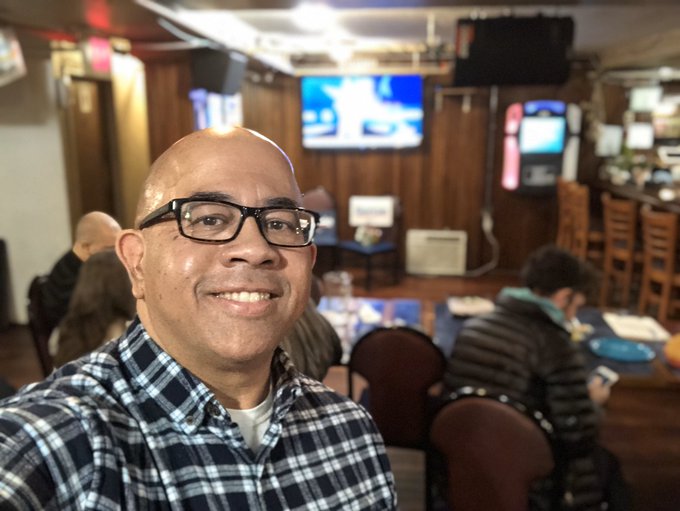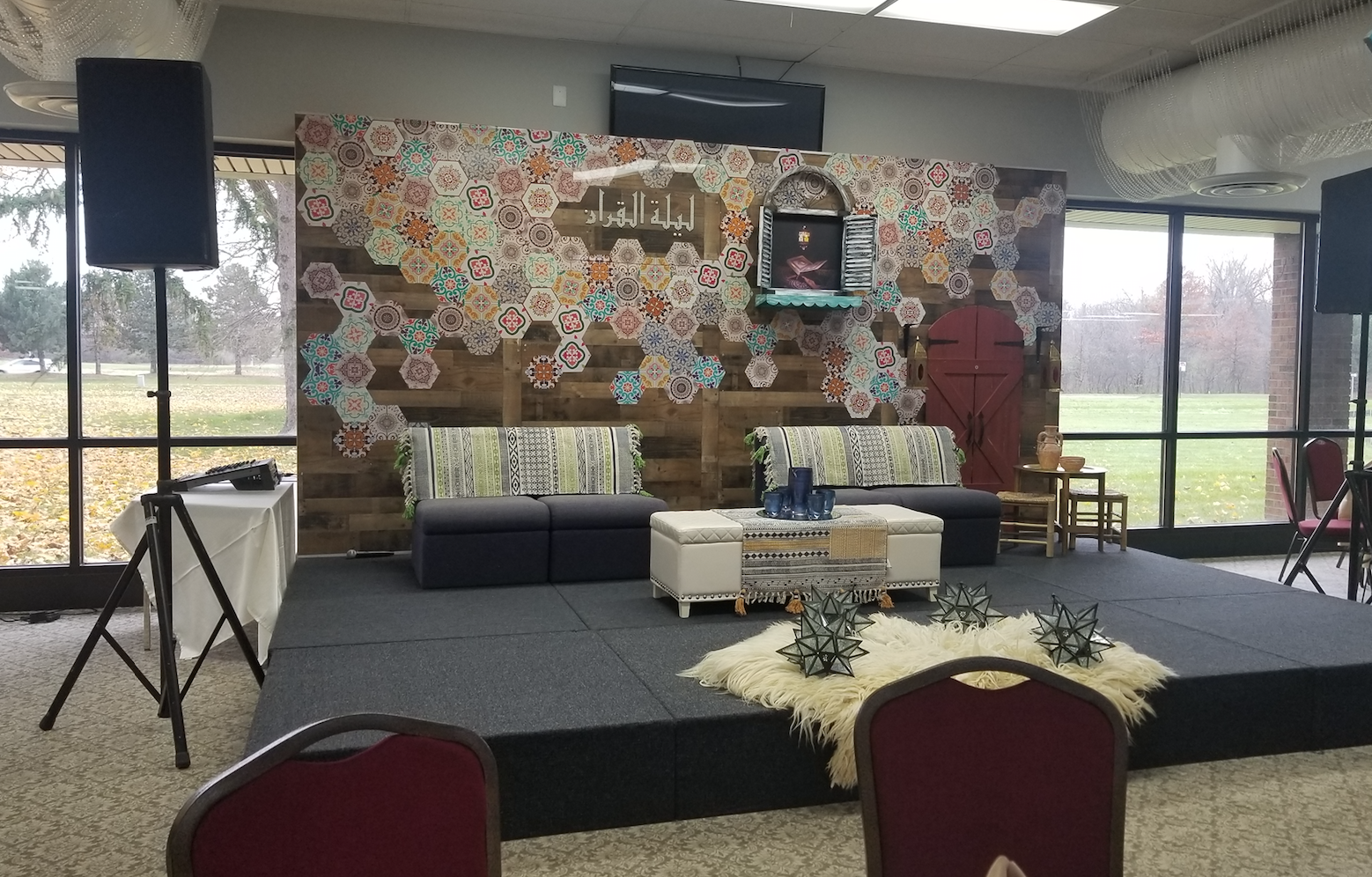Progressive American-Muslim former public defender seeks top prosecutor job
By M. Muhammad Ahmed
KANE COUNTY, IL – Junaid “J” Afeef is running for State’s Attorney in Kane County, Illinois which is a collar county outside of Chicago with a population of 530,000 residents. He is poised to be the first American-Muslim elected county prosecutor in Illinois, but first Afeef must win a contested Democratic primary on March 17, 2020. He is a former public defender, a civil rights attorney, and a criminal justice reform advocate. He is running a campaign focused on ending mass incarceration, treating addictions and mental illness as medical issues, and ending cash bail. Afeef is a part of a growing number of American Muslims who have become inspired to become public servants. Dozens of Muslim candidates like him across the country are seeking elected office this year.
Afeef, like many of the other Muslim candidates, traces his desire to run for office to his passion for serving the community. He went to law school in Washington DC and worked as a public defender in Chicago. He later went on to serve as executive director of the Council of Islamic Organization of Greater Chicago. He developed a unique interest in protecting marginalized groups and violence prevention.
One example of the type of case that motivates him to run was a case involving a 15-year-old high school boy in Batavia, Illinois. According to the Daily Herald, the teenager was plotting an attack intended to kill and injury tens of students. The plot was tied to a white nationalist manifesto that that referenced nazism and Adolph Hitler. In Afeef’s view, the prosecutors attempt to try him as an adult and use anti-terrorism statues rather than anti-hate laws is misguided.
“A 16-year old boy faces the prospect of going to prison for the better part of his life for a crime he committed when he was 15-years-old,” Afeef said. “For those of us working to bring reform to this system, this case is particularly gut-wrenching. The idea of hate-inspired violence is reprehensible, and yet, in this case, the defendant is a child. We need to treat kids as kids. Science shows us that the brains of adolescents are still developing and that their decision-making and judgment capabilities are not fully developed. To hold them to adult standards runs counter to science. Moving forward we must find solutions that prevent all forms of violence.”
Afeef criticizes current approaches to reducing gun violence since they focus on casualty mitigation, not gun safety laws or mental health.
“Children are forced to participate in traumatizing “run, hide, fight” drills in school,” Afeef said. “Until we as a society implement comprehensive solutions – sensible firearms safety laws, easy access to behavioral health and medical services, and a more informed and engaged community – we are left with just casualty mitigation. While casualty mitigation is very important, the opportunity to prevent violence needs to be pursued vigorously.”
Afeef’s experience with violence prevention started when he served as legal counsel for the Illinois Criminal Justice Information Authority. He worked with researchers and program managers on a wide range of violence prevention, rehabilitation, and crisis intervention programs. He then went on to establish and run Illinois’ Targeted Violence Prevention Program. The program was created as a public safety effort built on a public health model to prevent people from engaging in predatory violence and re-directing them to whatever help was needed in a therapeutic environment outside of the criminal justice system.
“Our mission at the Targeted Violence Prevention Program was to educate the community and law enforcement and provide them with the tools to recognize when someone is engaged in behaviors that raise concerns about impending violence and intervening through therapeutic, helping resources to address any underlying medical, mental health, or social problems that may drive a person towards violence.”
Afeef’s program relied heavily on violence prevention research and guidance from the Centers for Disease Control. As the director of the program, Afeef frequently spoke to law enforcement and public safety professionals about the public health approach to violence prevention, and in the context of domestic terrorism, Afeef was a leading voice on ending the profiling of Muslims and Arabs and for expanding the focus to include the greatest threats which he says are from violent far-right movements.
Other programs around the United States were created over the last ten years to fight extremist violence. These efforts, often led by law enforcement, have been criticized by civil rights organizations for using racial and religious profiling in their investigations. In a recent expose of “Countering Violent Extremism” programs in The Nation, reporter Julia Harte singled out Afeef’s program as one that “avoided targeting minority communities from the outset.”
Although some groups have been very vocal in their opposition to Afeef’s program, he has a broad-base of support. Lawyers from the Arab and Muslim community with strong track records of working for Arab and Muslim civil rights are among his supporters.
“Junaid will make an excellent State’s Attorney” Mazen Asbahi said, a partner a downtown Chicago law firm and an active member in the local Syrian-American and Muslim communities. “He has immense respect for the law and law enforcement and a deep commitment to public safety, civil rights, and criminal justice reform. He’s fair, clear thinking, and gets things done.”
Amina Saeed, a founding member of the Muslim Bar Association of Chicago and former executive director of the Council of Islamic Organizations of Greater Chicago said she has known Afeef for 25 years and described him as a person dedicated to protecting and serving the poor, immigrants, and other disenfranchised communities.
About his work with the Targeted Violence Prevention Program Saeed said: “Junaid built and led an innovative program to tackle the threat of individuals being recruited into hate motivated violence. With this work he challenged prevailing practices of federal law enforcement agencies that focused exclusively on Muslim and Arab communities. He reframed the work to address all forms of ideologically inspired violence.”
“On many occasions Junaid has taken stances that were difficult because he believed in the missions” sZubair Khan said, a former president of the Muslim Bar Association of Chicago. “Despite the criticism he remained firm in pursuing what he believed was right. Junaid has been an advocate for his own faith community, and he has also been an ally to other groups who have been and continue to be subjected to hate and discrimination.”
The Targeted Violence Prevention Program was ended when the Trump Administration reduced homeland security funding for Illinois.
Afeef believes his commitment to keeping people out of the criminal justice system using a public health approach to tackling the underlying, systemic causes of violence and crime have earned him endorsements from Bernie Sanders, Real Justice (led by civil rights leader and writer Shaun King), American Middle East Voters Alliance, Indo-American Democratic Organization and many other progressive organizations in Illinois and nationally. Muslim candidates are joining progressive movements across the country to promote a bright future for all Americans.

















2020
1,092 views
views
0
comments